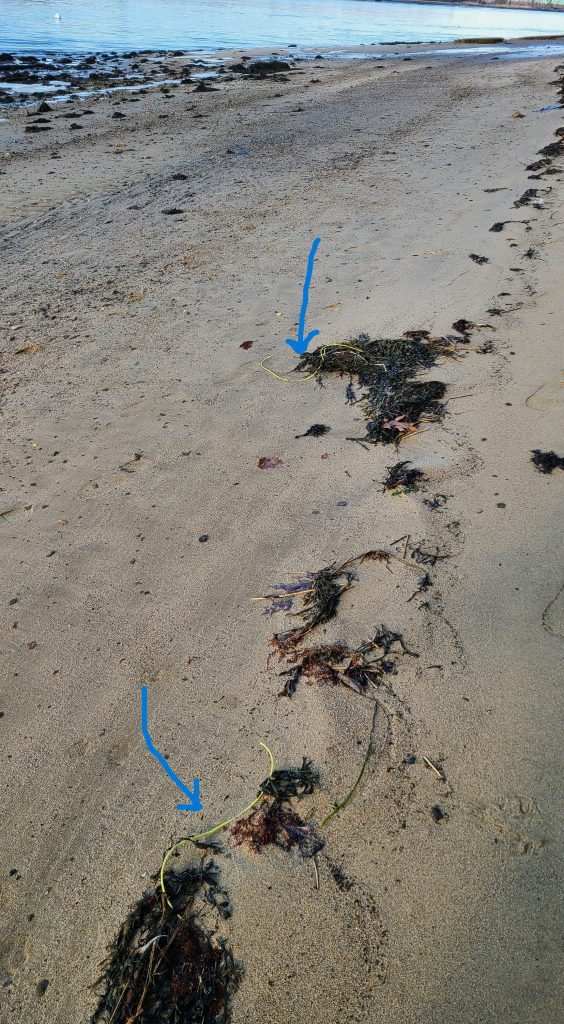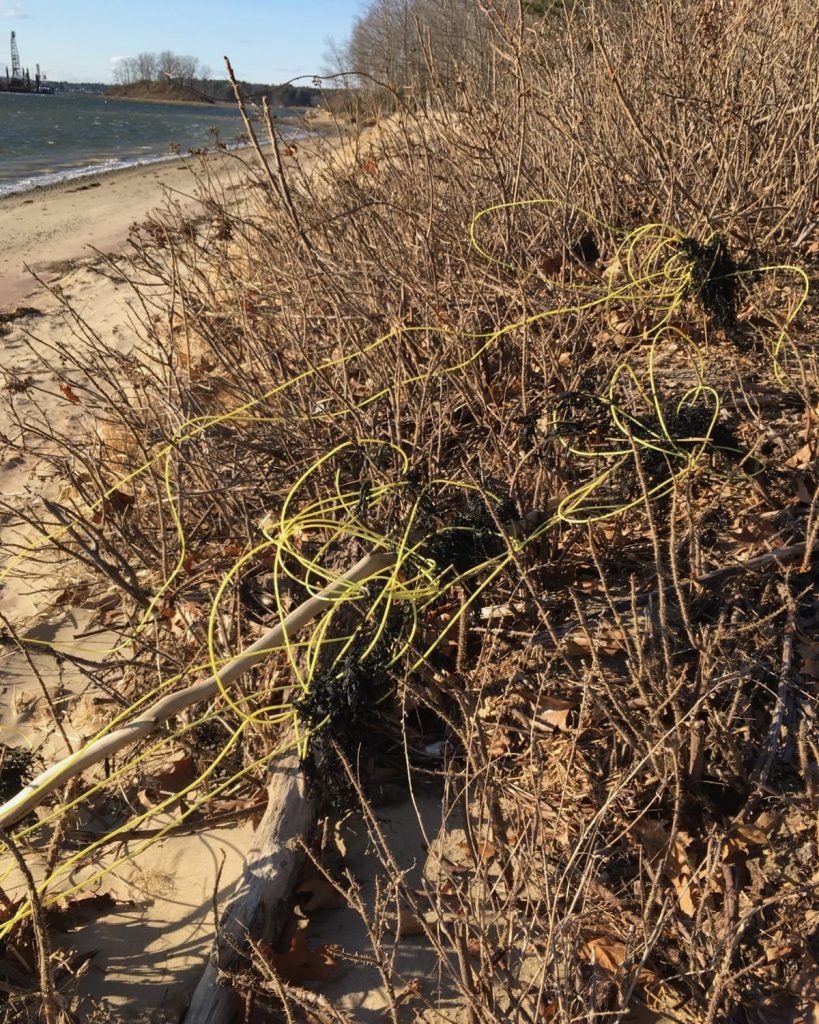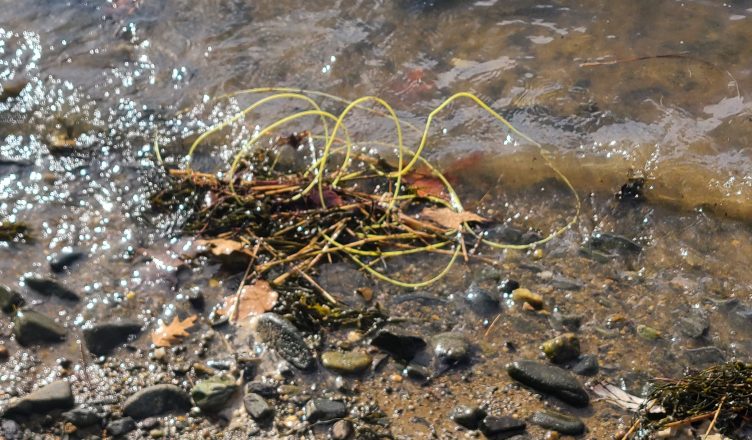Last week, we heard from our colleagues at the Center for Coastal Studies about mysterious yellow plastic that was being found all over Cape Cod, and had been showing up since the fall. After some sleuthing, they discovered that the yellow plastic is called explosive shock tubing and it is being used in dredging operations. The plastic on the Cape is likely from a huge project that started in June 2021 to deepen the entrance to Boston Harbor.
The next day, our Executive Director found one of these pieces of plastic along the Piscataqua River in Eliot, ME. A smaller dredging project is also underway in Portsmouth to widen the uppermost turning basin in the river. After doing our own detective work, we found out the dredging company is the same one that is working in Boston, and both are using the same yellow tubing.
The tubing is used in blasting operations to send a charge to an underwater explosive, which breaks up rock. The dredging company attempts to collect the tubing on site as the blasting happens, but some gets missed. Approximately 500,000 cubic yards of rock are being removed in the Boston project. Portsmouth’s project is of a much smaller scale – about 15,000 cubic yards of rock are being removed there. Blasting for both projects has concluded – Boston in January, and Portsmouth just this week.
The tubing we’ve found so far ranges from a few inches in length, to 88 feet in length. It is often found in vegetation, the wrack line or at the water’s edge – all places where birds or other wildife could be impacted through entanglement or ingesting smaller pieces.

How You Can Help
Although blasting has concluded, the yellow plastic tubing will continue to wash up on beaches around the Gulf of Maine, and perhaps further. This is where you come in. If you find a piece of yellow plastic tubing in the Portsmouth area, please send the location and length to us at litter(at)blueoceansociety.org. If you find it in other locations, please send the location and length to Laura Ludwig at the Center for Coastal Studies (lludwig(at)coastalstudies.org). Getting the location where you find the plastic is very important, because it can help us determine which project the plastic is likely from.
The information you provide can help the dredging company and Army Corps of Engineers improve practices and ensure more eco-friendly operations in the future!
Learn More
- CCS Marine Debris Discovery Helps U.S. Army Corps of Engineers Revise its Blasting Containment Procedure
- Conduct a cleanup to help us remove this litter and other trash from our beaches! Use our Digital Cleanup Kit or Book a Group Cleanup







